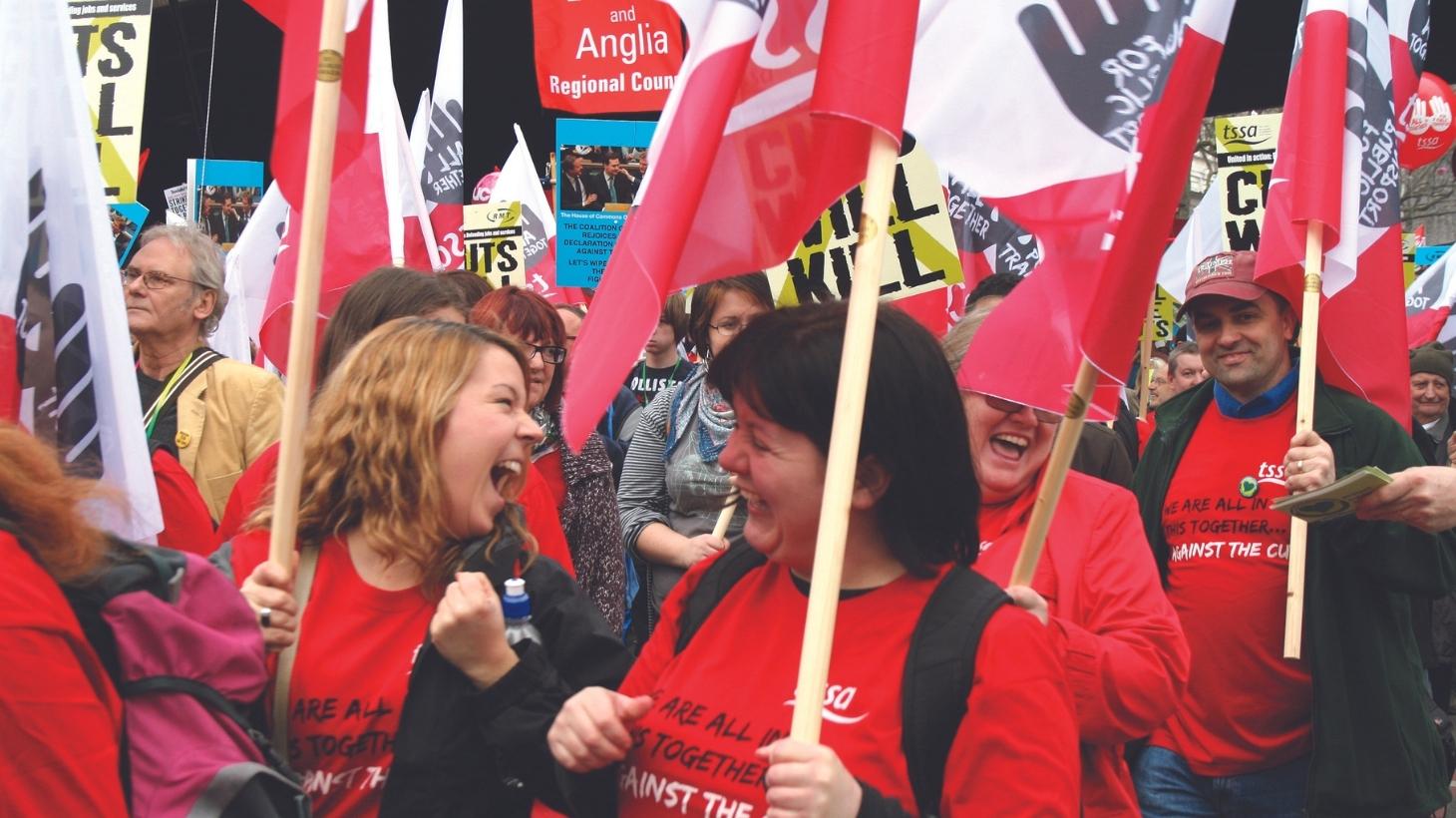Wages not Weapons: Nukes, war, and the cost of living crisis
Wages not Weapons: Nukes, war, and the cost of living crisis
from Kate Hudson, General Secretary at the Campaign for Nuclear Disarmament
The threat of global nuclear war is at an all-time high. Putin’s illegal invasion of Ukraine, the weaponisation of nuclear power plants, and repeated threats of a nuclear strike are of existential concern for us all. Talk of World War 3 is now commonplace and media headlines strike fear into our hearts. When we add this to the inequalities entrenched by the Covid-19 pandemic, accelerating climate collapse, and the cost of living crisis, the scale of the problems facing us seem even greater. However, the government is making all the wrong moves on these issues. In fact, they’re making things worse. Thankfully unions, campaign groups, and ordinary people are coming together to demand better for themselves, their colleagues, and their families. The Campaign for Nuclear Disarmament has long pointed out the colossal waste of money nuclear weapons place on the British taxpayer - and we are now calling on the government to urgently switch its priorities to tackle the cost of living crisis with our Wages not Weapons campaign.
The Nuclear Threat
As the war in Ukraine accelerates, the chances of a nuclear attack increase by the day. And Putin’s nuclear brinkmanship increases the chances of a nuclear confrontation between NATO and Russia. The US and Russia have around 12,000 nuclear weapons between them - some 100 times more powerful than the bomb dropped on Hiroshima in 1945 which killed hundreds of thousands of innocent civilians. Britain meanwhile plays its own role in ratcheting up the tension. In 2021 the government announced a 40% increase in the nuclear arsenal. Then earlier this year it was discovered that US nuclear bombs are returning to the US-run Lakenheath airbase in Suffolk. Another target to put us on the front line in a nuclear war.
Media outlets are awash with stories on the potential use of so-called “low-yield” or “tactical” battlefield nukes - as if a nuclear strike could be used surgically instead of as a weapon of mass destruction. Make no mistake, there is nothing small or controllable about them. These so-called “low-yield” nukes have explosive yields between 10 and 100 kilotons. The Hiroshima bomb had a yield of 15 kilotons. So in today's terminology, Hiroshima would have been a 'small' nuke. Any nuclear use would lead to a cascade of nuclear use of catastrophic proportions and devastation.
The Cost of Living
While the threat of nuclear use is very real, people are also focused on the immediate problems caused by the cost of living crisis and the hardship it is bringing to them and their families. Food bank use jumped by 81% between 2016 and April of this year. The Office for National Statistics believes inflation could top 18% by the start of 2023. Earlier ONS estimates of 10% inflation already had workers facing a real-terms pay cut of 1.9% rising to 4.2% for public sector workers. Instead of instigating urgent action to shield the most vulnerable to these shocks, the government’s response was to give the most well-off a tax cut - crashing the pound in the process.
The government’s answer to the rise in energy prices also runs counter to its climate commitments - with new oil and gas drilling, lifting its moratorium on fracking while planning to limit solar farms, and pump billions of pounds into new nuclear power stations that will risk accidents, dangerous health impacts and create a legacy of toxic radioactive waste, as well as harming the surrounding environment and wildlife while adding to consumers' energy bills to pay for it.
Prioritising Wages not Weapons
The government says it has no money for fair wages, but it does have money for weapons. Replacing Britain’s nuclear weapons system Trident is costing at least £205 billion and will likely be much higher. Prime Minister Liz Truss also plans to increase defence spending from 2.2% of GDP to 3% by the end of the decade - which the Royal United Services Institute estimate would cost an extra £157 billion. This does nothing to meet our genuine security needs.
CND argues that the real security we need is wage, housing, food and heating security, with practical solutions rather than expensive white elephants that do nothing to help working people. Militaries globally contribute to 6% of greenhouse gas emissions - but these are not included in countries' climate targets. We need a government that promotes peace and disarmament and invests in genuine green jobs in renewable energy and insulation - that reduce energy bills. Jobs in the defence sector can be diversified into this - as shown by BAE Systems’ own diversification to make ventilators during the pandemic. By working together, we can move towards a safer, cleaner and more prosperous future for us all.

